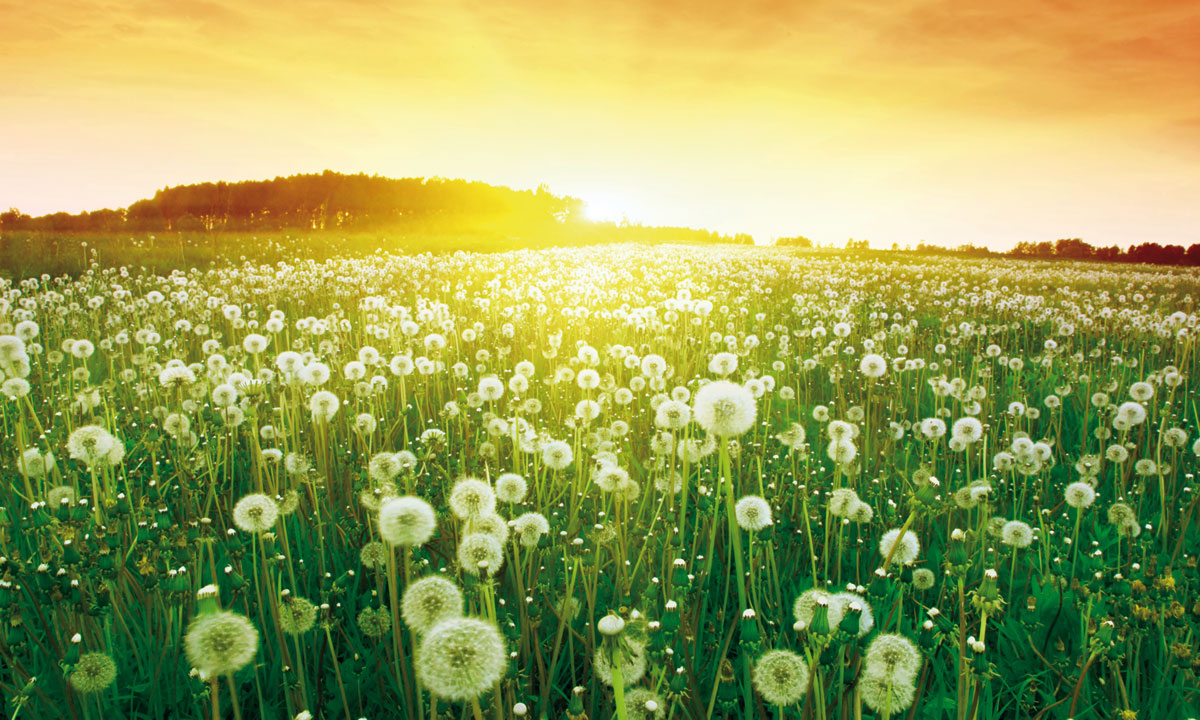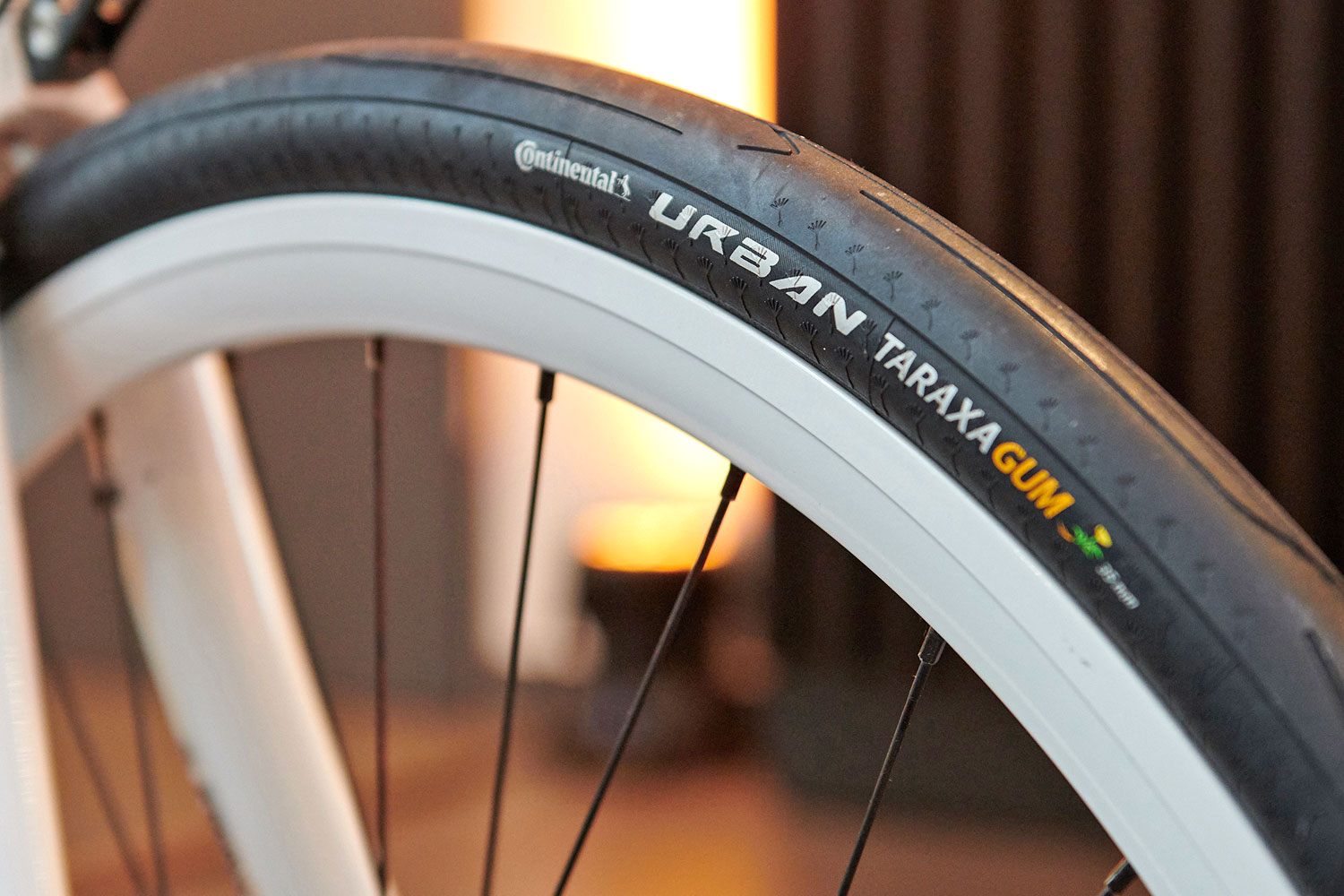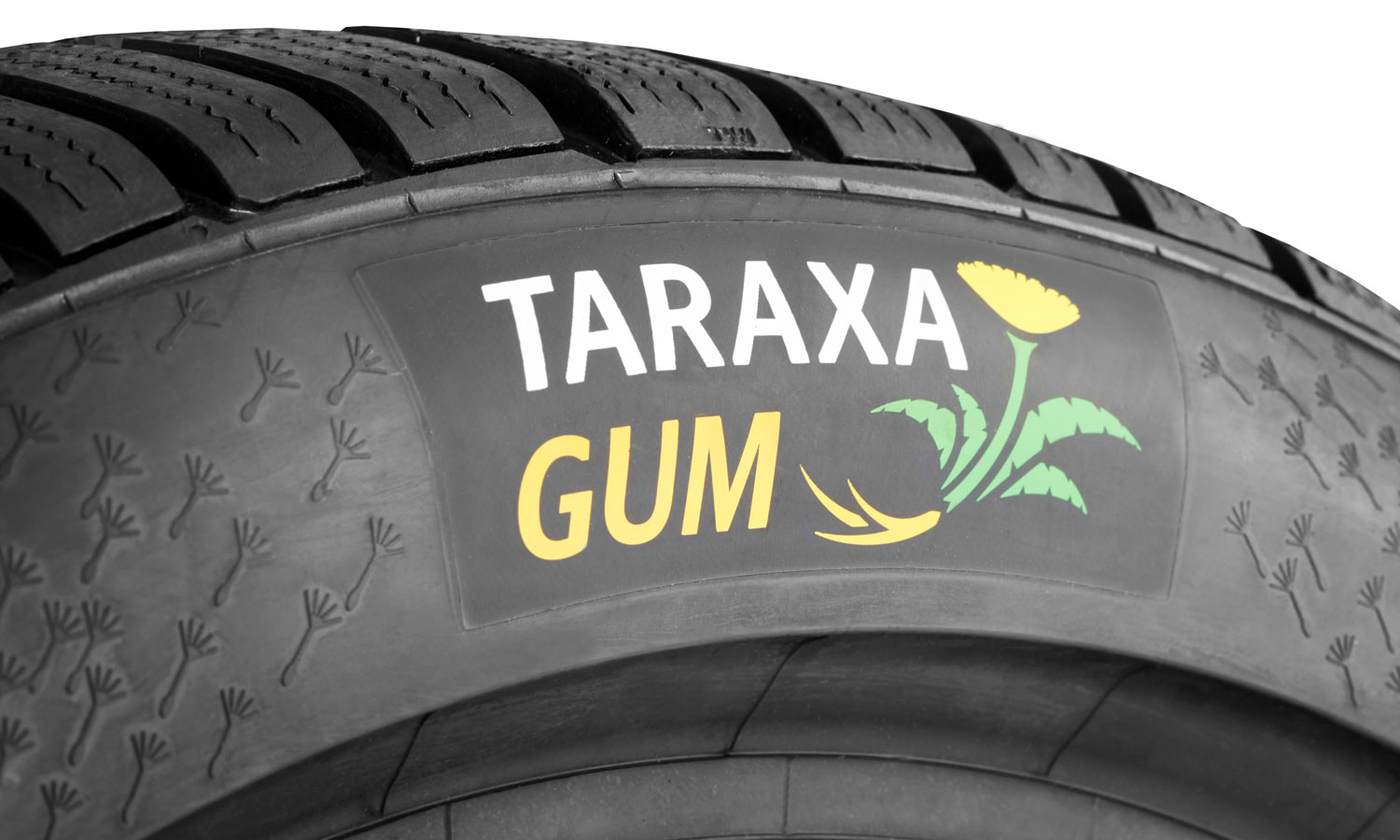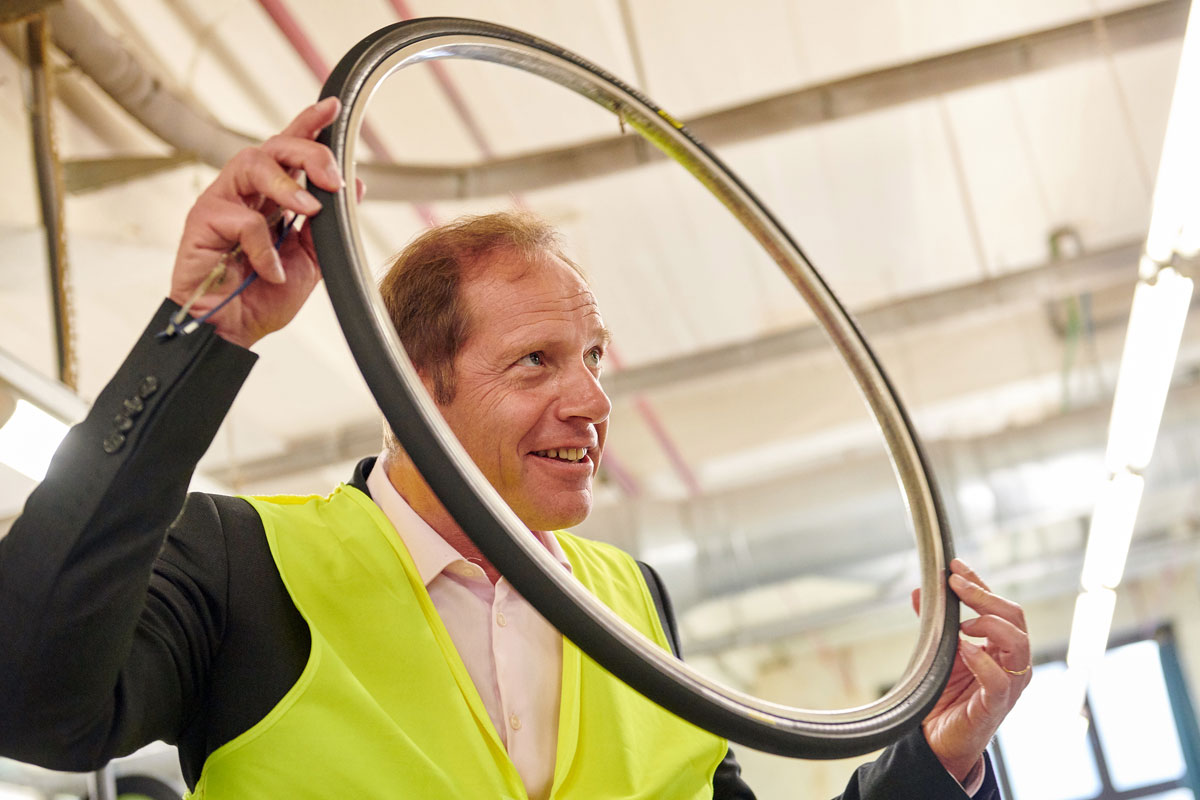As a key sponsor of Le Tour, Continental is using the race to roll out their first production bicycle tires made from dandelion rubber in a few weeks. Conti has been ramping up corporate sustainability in recent years, and this new Urban Taraxagum bike tire is an example of alternative rubber source that is less harmful to the environment.
Continental sustainable dandelion rubber Taraxagum tires

In late autumn last year German tire-maker Continental opened up their Taraxagum Lab Anklam research laboratory to further develop more sustainable rubber production made out of dandelions. The process uses a hardy Russian dandelion plant that can be grown close to the rubber factories and does not need to be harvested in the rain forest as with conventional natural rubber.
Besides not harming vulnerable environments, the resulting dandelion rubber cuts CO2 emissions in the process due to shorter transportation required, and means a European tire maker like Conti won’t have to rely on imported rubber. We saw Vredestein showcase this same tire technology back at Eurobike two summers ago, but it hasn’t ever made it into production as far as we know.
At Le Tour the tire Conti will be showing isn’t a pro-level road racing tire, but rather the Urban Taraxagum commuter tire. (Six World Tour teams will race on conventional Continental tires, though.) Still meant to be a performance 700c tire, it is slated to be available in limited quantities this summer in a lightweight 35mm wide version with an integral Vectran breaker as a fast-rolling all-rounder.
But it isn’t destined to only be a commuter-level tire. Conti says their Taraxagum Lab is looking at redeveloping their signature Black Chili rubber with a dandelion base. Continental already produces the only ‘handmade in Germany’ bike tires on the market. But with the dandelions grown in northeast Germany in Anklam & the tires produced in their more central Korbach tire factory, these Urban Taraxagums are set to be the most German bike tire yet.
Continental Executive Board member Nikolai Setzer called the Taraxagum dandelion rubber project, “an important alternative and complementary to conventional natural rubber from hevea brasiliensis allowing us to meet rising global demand in an environmentally compatible and reliable way.”


